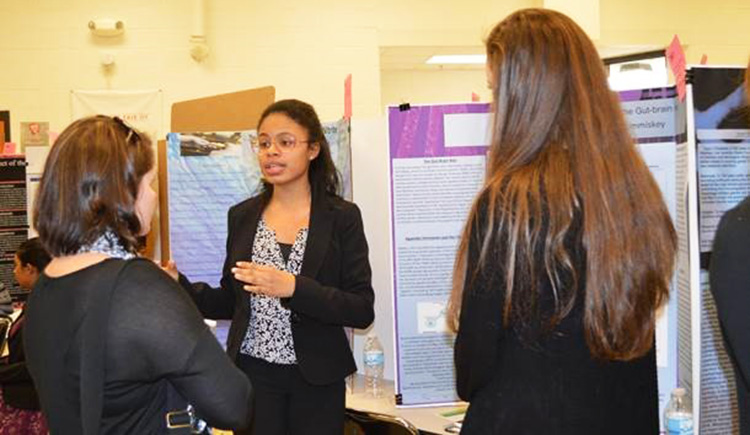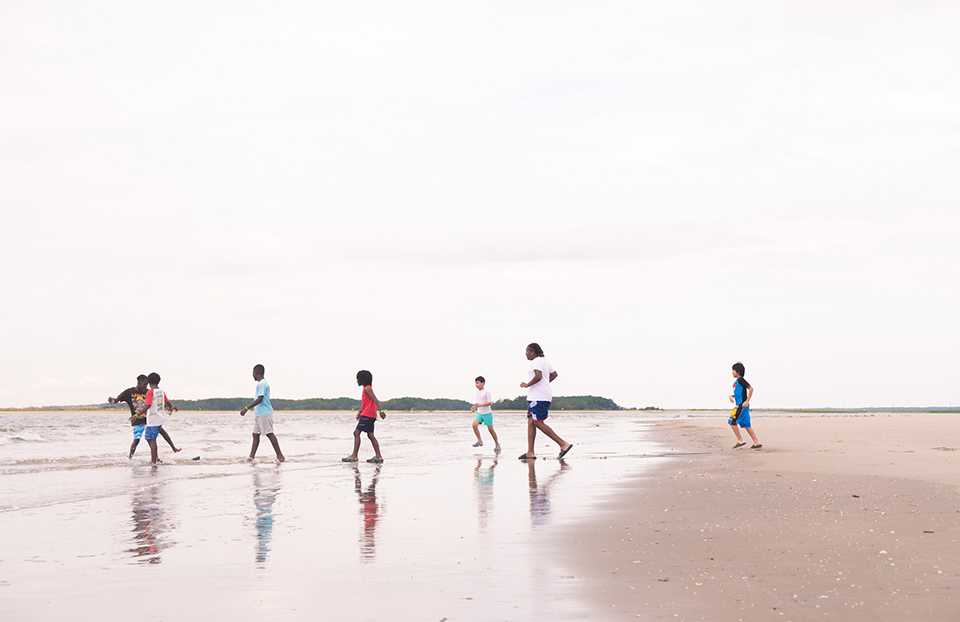Society Advocate hosts Breakfast Club for students

The Advocate Grant program is designed to provide support to underrepresented and socioeconomically challenged students who have conducted scientific or engineering research projects, and encourage them to take the next step in the process by submitting their research to a scientific research competition. The program provides a $3,000 stipend to an individual (such as a teacher, counselor, or mentor) who agrees to serve as an advocate for a group of three to five underrepresented students. The individual agrees to support the students by prompting and communicating to them about possible competitions and relevant deadlines, and supporting the gathering and writing of the required elements of an application.
Applications for the Society Advocate Grant will open March 1st, 2016. The Advocate Grant program is funded by Alcoa Foundation, Jack Kent Cooke Foundation, and the Society.
This year, Advocate Scott Bolen is working with students at Rockdale Magnet School for Science and Technology in Atlanta, Georgia. A number of his students received accolades for their research:
- McKenna Commiskey was a first place winner and Grand Champion at the local fair and will attend Intel ISEF in May. She will also attend the Georgia Science and Engineering Fair in March and received the Intel Science Talent Search Recommendation Award.
- Ralph Dizon was a first place winner, Grand Champion, and winner of the Stockholm Junior Water Prize. He will also attend the Junior Science and Humanities Symposium and Georgia Science and Engineering Fair in March.
- Irene Laws was a first place winner and received the Intel Science Talent Search Recommendation Award.
- Tay Mortimer received the Intel Science Talent Search Recommendation Award.
- Molly Niemczyk was a first place winner, Grand Champion, and won the American Psychological Association Award. She will attend the Georgia Science and Engineering Fair in March.
- Kya Wideman was a first place winner and Grand Champion at the local fair and will attend Intel ISEF in May. She will also attend the Georgia Science and Engineering Fair in March and received the Intel Science Talent Search Recommendation Award.
Society for Science & the Public caught up with Scott and his mentees:
Why did you choose to become part of the Society’s Advocate Grant program?
I became part of the program because of my experiences as a teacher and the impact that science competitions have had on my students. During my career, I have witnessed the significant impact these programs have on student success. I joined the program because I wanted to learn more about the programs and opportunities available to students, and I wanted my students to have the opportunity to participate and benefit from them.
I think it is important for socioeconomically challenged students to participate in science fairs because they give students opportunities beyond what can be offered in the classroom during the traditional school day. Students have to prepare something that is authentically theirs, work on a presentation, and defend their work in front of judges. Preparing for this type of activity can take lots of work outside of the classroom and this is a place where I see socioeconomically challenged students struggle. I feel like this program has allowed me to help with that struggle so that my students can enter competitive projects in the science fair.
Have you met with or mentored your group of students? What was the experience like?
Working with students to get ready for science fair is always fun, stressful, and rewarding all at the same time. Our student group had 156 participants and we met on Wednesday mornings in a group we called Bolen’s Breakfast Club. We spent time discussing projects, roadblocks that the students were experiencing, and ways to troubleshoot these problems. We also discussed big-picture ideas like competition deadlines and how to apply.
How did you first become interested in STEM?
I work at a wonderful high school in Georgia named the Rockdale Magnet School for Science and Technology. We are a school that focuses on STEM pathways. I have been lucky to teach some outstanding students during my tenure at RMSST. My interest and passion for STEM really grew out of my student’s interests. My students have taught me to value and appreciate STEM education.
What is your advice to young people interested in science and math?
Science and math concepts can often sound difficult and intimidating. My most successful students have been the ones who have not been afraid to jump head-first into something and not be afraid to mess up.


